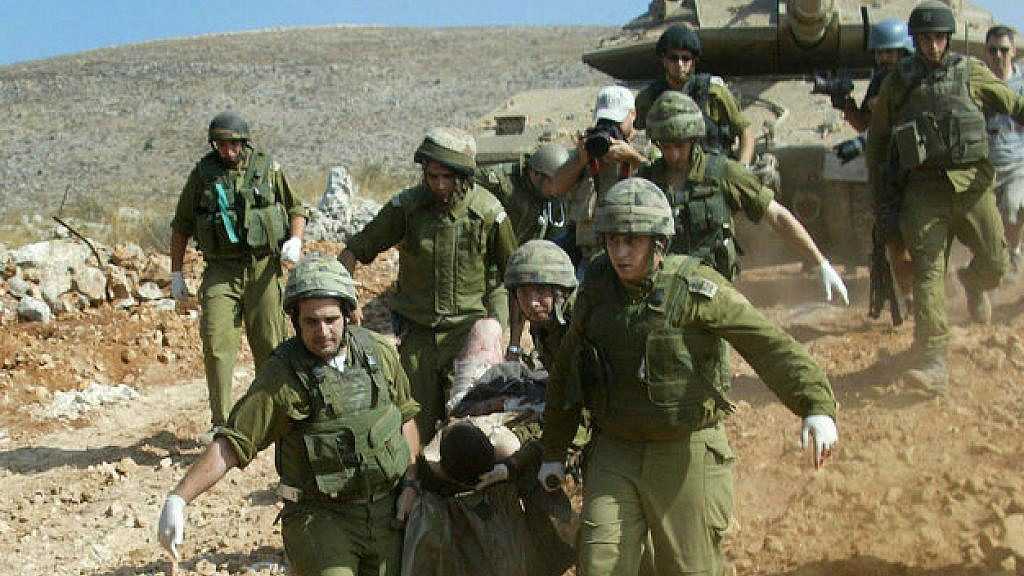July 6, 2021
On the cusp of the fifteenth anniversary of the July 2006 war and the victory of the resistance, the “Israeli” media is pumping out material to cover the occasion. Today, the narrative in “Israel” underscores the inability of the “Israeli” army to emerge triumphant from any battle. One of the central questions being raised is whether the army’s ground forces that have not been used extensively for many years are capable of performing incursions into “enemy” territory – in this case Lebanon.
An article by “Israel” Hayom’s military correspondent Lilach Shoval concludes that without drastic improvements within the media sphere, the “Israeli” army would also be defeated at the tactical and even strategic level in the next war. She notes that victory will not be evident, while the feeling of bitterness from 2006 may repeat itself.
Below is the text from Shoval’s article:
Fifteen years have passed since the outbreak of the Second Lebanon War, which left the “Israeli” public with a resounding feeling of missing out on an opportunity and failure after the “Israeli” army failed to win the battle. Katyusha rockets were fired until the last moment, and Hezbollah pursued the withdrawing forces. In terms of time, failure seems dangerous, at least in terms of the relative calm that has prevailed on the border since that war. But this calm is misleading and is not necessarily a direct result of the military steps of the war.
A balance of mutual deterrence prevailed between “Israel” and Hezbollah in recent years, and the two sides are not interested in a broad confrontation at this time. Nevertheless, “Israel” and Hezbollah are preparing for the day the order is issued, through a reasonable assumption that a confrontation could erupt at any moment as a result of one tactical incident or another.
“Israeli” army officials rightly believe that the next confrontation will not be similar to the previous ones. The lessons the “Israeli” army learned during those years, the updated operational plans, as well as the training and equipment upgraders, are reasons to hope that the army will act in a different way next time.
Those concerned in the “Israeli” army realize that if in the past Hezbollah’s previous victory entailed launching rockets until the last day and withstanding attacks from the “Israeli” army, today the organization is talking about launching attacks against the “Israeli” forces. This understanding, combined with the events of “Operation Guardian of the Walls” and “Operation Resolute Cliff” [Protective Edge] in Gaza, which were a small prelude to the war in the North, is prompting the “Israeli” army to prepare a strong defense along the border.
After all, the central question to be asked is whether today’s ground forces, which haven’t been utilized for many years, are sufficiently suitable for land incursions into enemy territory. In light of the understandable unwillingness to maneuver on the ground and all that comes with it, it seems that in recent years the “Israeli” military partly reverted to the approach that accomplishments can only be achieved from the air.
The military and political leadership is very afraid about ground forces entering the battle because their efficiency has not been proven in recent years. They are also concerned for the lives of soldiers and the sensitivity of “Israeli” society towards this issue. The “Israeli” army, for its part, is doing all it can to prepare the ground forces so that the political leadership can feel more comfortable activating them when and if the next confrontation occurs. Meanwhile, the “Israeli” army continues to rely on its air force. If on the eve of the Second Lebanon War, the “Israeli” army had hundreds of targets to attack from the air, today there are thousands, and the Intelligence Division knows how to add more in real time. There is a high dose of energy behind any potential attack, and the air force can attack thousands of targets per day.
According to estimates by the “Israeli” army about strikes on the home front, Hezbollah will launch about 1,500 missiles at “Israel”. The Iron Dome will provide a good response, but, contrary to the expectations of the “Israeli” public, the system will not be able to intercept all the missiles.
In the army, officials are very afraid of the deep gap between the public’s expectations in this field and what is expected to happen in practice during the northern confrontation. One of the lessons learned – specifically from Operation Guardian of the Walls – is the need to find a more effective solution to hitting missiles in enemy territory. If we are talking about the “Israeli” home front, defense of the northern settlements received less attention in recent years than in the settlements near the fence in Gaza, and the condition of the shelters there is also worrying.
There is also a weak cell – the media, which was a weak point in the recent confrontations. In “Operation Guardian of the Walls”, the weakness of the “Israeli” media was exposed internally and externally. The gap in linking qualitative information with the media was also exposed. The “Israeli” army is not the only one to blame for the failure of the media because, at least in the international arena, the intervention of other parties, such as the Foreign Ministry, is required.
Without a drastic improvement in the media’s efforts [explanations], the “Israeli” army will also be defeated at the tactical and even the strategic level in the next war. Victory will not be evident, and the bitterness from 2006 may repeat itself.














No comments:
Post a Comment